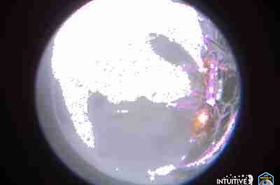SpaceX’s Starlink satellite connectivity unit is now breaking even, and reportedly expected to reach revenues of $10 billion next year.
“Excited to announce that SpaceX Starlink has achieved breakeven cash flow! Excellent work by a great team,” CEO Elon Musk posted to X (formerly Twitter) late last week. “Starlink is also now a majority of all active satellites and will have launched a majority of all satellites cumulatively from Earth by next year.”
Scroll down for more satellite news
According to Bloomberg, SpaceX is on track to book revenues of about $9 billion this year across its rocket launch and Starlink businesses, with company sales projected to rise to around $15 billion in 2024.
According to unnamed people familiar with the matter, Starlink sales are expected to outpace and exceed the launch business next year. For next year, Starlink will account for more than $10 billion of total sales, representing the majority of SpaceX revenue.
A tender offer at SpaceX earlier this year valued the company at about $150 billion, Bloomberg previously reported.
SpaceX launched the first operational Starlink birds in 2019. Today there are around 5,000 Starlink satellites in orbit. The unit has around 2 million subscribers.
Leaked reports suggest Starlink posted $1.4 billion in revenue for 2022, up from $222 million the year before. Musk had previously predicted Starlink would make $12 billion and $7 billion in operating profit in 2022, having gained 20 million subscribers.
As well as selling directly to consumers, Starlink has signed dozens of enterprise customers as well as wholesale agreements with telcos and resellers. The company has signed deals with a number of maritime and aviation customers, and has formed direct-to-cell agreements with a number of telcos globally.
In other satellite news:
- Solomon Islands operator bmobile has launched a satellite direct-to-cell service via LEO satellite operator Lynk Global. The service currently supports SMS.
Bmobile will initially offer Lynk’s Sat2Phone service on the island of Malaita as a beta service that supports cell broadcast (emergency) alerts, and two-way SMS.
- Canadian telco Telus has announced a successful device-to-device communication trial via satellite. The company has partnered with TerreStar Solutions (d/b/a Strigo) and Skylo to conduct voice calls, send text messages between smartphones, and connect to Internet of Things (IoT) devices via TerreStar’s Echostar T1/TerreStar 1 satellite.
- Telesat is requesting a four-and-a-half-year delay to reach the 50 percent launch requirement for its upcoming Lightspeed satellite network. Satellite launches are scheduled to commence in mid-2026 and polar and global services are scheduled to begin in late 2027.
First announced in 2018, Thales Alenia Space was chosen to be the prime manufacturer for the Lightspeed constellation back in February 2021, before announcing earlier this year the company was switching to MDA.
- OneWeb and Marlink are to provide satellite connectivity to exploration cruise firm Ponant for its luxury icebreaker Le Commandant Charcot.
- Space tracking firm LeoLabs has said two Russian satellites – Resurs-P3 and Cosmos-2562 – have conducted close proximity maneuvers in orbit. Launched in 2016, Resurs-P3 was previously thought to be non-operational after a solar panel failure. Cosmos-2562 is a Russian military satellite launched in 2022.







